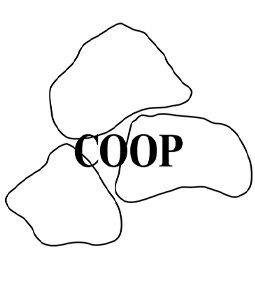Coop study groups ~ formal framework | EER 2023-2024
* Participation in the COOPs = compulsory
*1st & 2nd year students study together
*18 ECTS per academic year
*320 hours of self-study outside of DAI Weeks
*240 IRL contact hours during DAI Weeks
*Presence during IRL contact hours: 100% attendance is strongly recommended. If there are urgent reasons for non-attendance, you are, by law, allowed to miss out on 4 and half day of the regular COOP days (so not during the COOP SUMMIT which counts as an assesment and must be attended, see below), without an additional task above the required hours of self-study. Non-attendance within the 20% limit does not affect your ECTS, but may however impact your final evaluation. If your absence extends beyond the permitted number of 4 and half day, an additional task (always tailor-made !) must be agreed upon between you and the study group's Tutorial Team and the WEAVER team, backed up by the ArtEZ Central Exam Committee.
Assessment
Formative midterm evaluations COOPs:
Individual check-in (with the help of a check-list provided by the Education Team Leader), between student and tutor or tutorial team.
Summative final assessment COOPs:
Research, collaborative, underpinned by strong individual efforts, will be materialized in:
*the Chronicles (online) & *the final group work to be presented during the COOP SUMMIT (IRL)
Please note that IRL presence during the COOP SUMMIT is compulsory and does not fall under the 20% leeway. Individual input to the collective output will be assessed by the tutorial team of your COOP and supervised by the education team leader - towards the end of the year long trajectory. COOPs are concluded successfully when the student is accredited with at least a ‘satisfactory’ for the overall review.
Evaluation: insufficient (=5), satisfactory (=6), very satisfactory (7=), good (=8), very good (=9), excellent (=10).
The COOP tutorial team issues a report (written evaluation + grading, based on the competences) which will be made available to the student upon graduation or at the very beginning of the second year.

